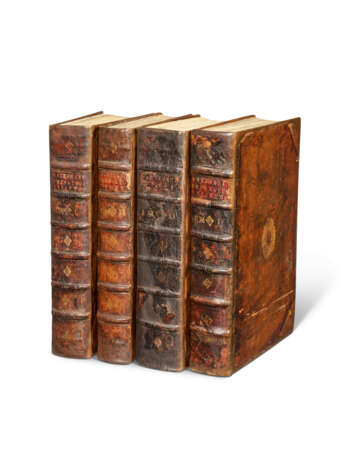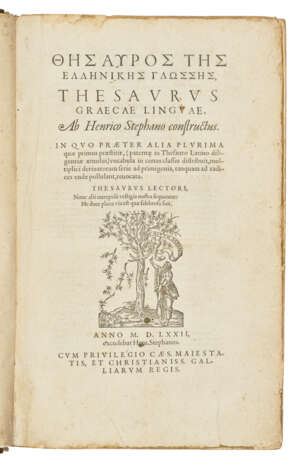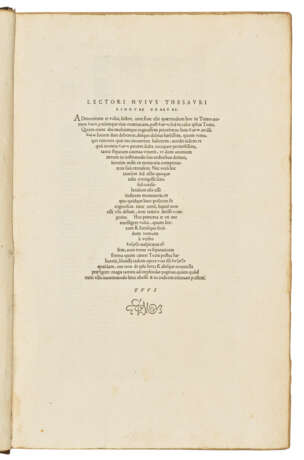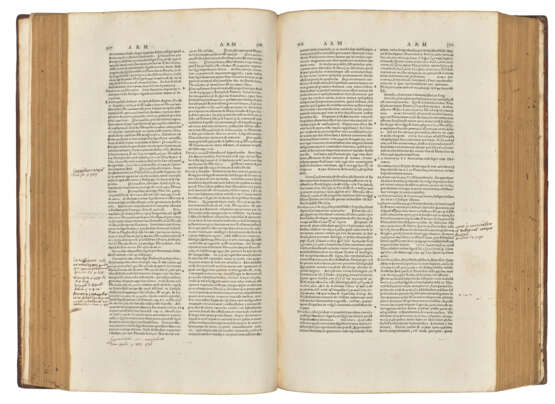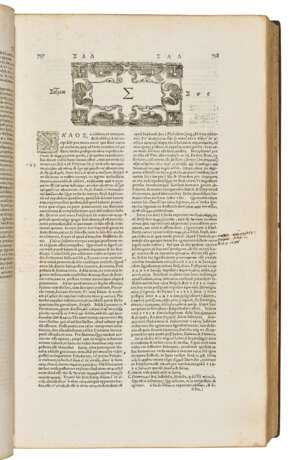ID 1349683
Lot 119 | ESTIENNE, Henri (1528?-1598)
Estimate value
£ 6 000 – 8 000
Thesaurus linguae graecae, with the Appendix Libellorum ad Thesaurum Graecae linguae pertinentium, in Greek and Latin. [Geneva]: Henri Estienne 1572
First edition of Henri Estienne’s ground-breaking Greek dictionary, which ‘remains to this day the essential tool for the study of Greek, since there still exists no substitute for it’ (Schreiber). It is ‘the most comprehensive and sophisticated lexical record of any European language that had ever been published’ (J. Considine, Dictionaries in Early Modern Europe, 2008, p. 82). Complete, with the four parts and Appendix. The Thesaurus was envisaged by Robert Estienne to complement his Latin Thesaurus of 1543, and his son Henri was already at work on it in 1558. It was a pioneering work, arranging words not in alphabetical order but grouped according to their etymological roots (Schreiber). Adams S-1791; Schreiber, Estiennes 181; Brunet II, 1078; Renouard, Estienne 138.
5 parts in 4 volumes, folio (370 x 237mm). Complete, with 3 blanks, woodcut Estienne device on title-page, woodcut signature of Henri Estienne in Greek in vols 2, 4 and 5, woodcut cartouche heading each letter (scattered dampstaining, rare occasional inkstains, a few small wormholes, small ink stain obscuring a few letters on v.2 CC.ii, TT.i and v.3 3P4). Contemporary French calf, with gilt foliate cartouche at centre, single fleuron in spin compartments, 2 spine labels (rebacked and restored, by Bottega Fagnola, Turin, with label). Provenance: early annotations in Greek and Latin, often giving volume and page reference – Livio Ambrogio (monogram bookplate).
| Place of origin: | Western Europe, Europe, Switzerland |
|---|---|
| Auction house category: | Books and manuscripts, Printed books |
| Place of origin: | Western Europe, Europe, Switzerland |
|---|---|
| Auction house category: | Books and manuscripts, Printed books |
| Address of auction |
CHRISTIE'S 8 King Street, St. James's SW1Y 6QT London United Kingdom | |
|---|---|---|
| Preview |
| |
| Phone | +44 (0)20 7839 9060 | |
| Buyer Premium | see on Website | |
| Conditions of purchase | Conditions of purchase |
